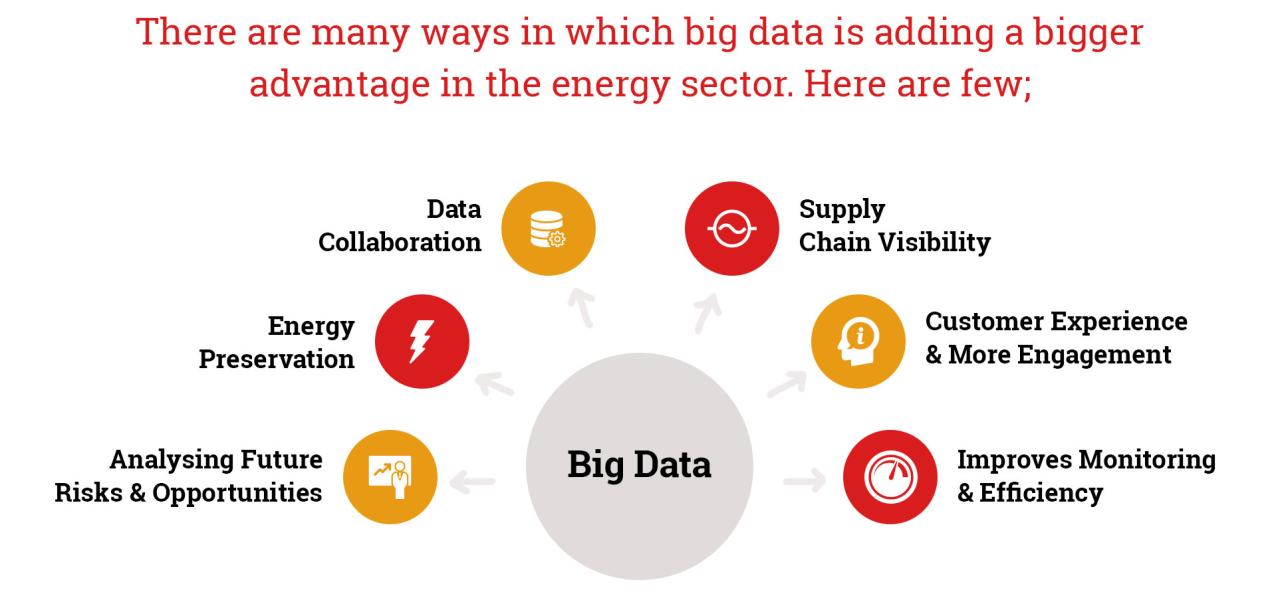
The use of big data is transforming the energy industry. By analyzing large datasets on energy consumption, production, and distribution, organizations can gain valuable insights into how to improve energy efficiency and drive innovation. In this article, we'll explore the ways that big data is being used to improve energy efficiency and drive innovation in the energy industry.
What is Big Data?
Big data refers to the vast amount of data that is generated by digital devices and systems. Big data is characterized by its volume, velocity, and variety. The volume of data generated by energy systems can be immense, while the velocity at which it is generated can be rapid. The variety of data can also be diverse, including structured and unstructured data from a range of sources.
Driving Energy Efficiency with Big Data
Big data is being used to drive energy efficiency in a number of ways:
- Improving Energy Management
Big data is being used to improve energy management by analyzing data on energy consumption and identifying opportunities for energy savings. By tracking energy consumption in real-time, organizations can identify areas where energy is being wasted and develop targeted interventions to improve efficiency.
- Optimizing Energy Production
Big data is also being used to optimize energy production by analyzing data on energy production and identifying opportunities for improvement. By analyzing data on weather patterns, energy demand, and production capacity, organizations can optimize energy production to meet demand while minimizing waste.
- Enhancing Energy Distribution
Big data is also being used to enhance energy distribution by analyzing data on energy flows and identifying opportunities for improvement. By analyzing data on energy demand, distribution capacity, and grid performance, organizations can optimize energy distribution to ensure that energy is delivered where it is needed most.
Driving Innovation with Big Data
Big data is also driving innovation in the energy industry in a number of ways:
- Advancing Renewable Energy
Big data is being used to advance renewable energy by analyzing data on weather patterns, energy production, and demand. By using big data to optimize the production and distribution of renewable energy, organizations can increase the reliability and affordability of renewable energy sources.
- Developing Smart Grids
Big data is also being used to develop smart grids by analyzing data on energy consumption and grid performance. By using big data to optimize the performance of the grid, organizations can reduce the risk of power outages and improve the efficiency of energy distribution.
- Improving Energy Storage
Big data is also being used to improve energy storage by analyzing data on energy production and demand. By using big data to optimize the storage of energy, organizations can increase the reliability and affordability of energy storage solutions.
The Benefits of Big Data in Energy
The use of big data in energy offers a range of benefits, including:
- Increased Energy Efficiency
Big data can help organizations identify opportunities to improve energy efficiency, reducing waste and lowering costs.
- Greater Reliability and Affordability of Energy
Big data can also help organizations optimize the production, distribution, and storage of energy, increasing the reliability and affordability of energy sources.
- Driving Innovation and Sustainability
Big data is driving innovation and sustainability in the energy industry, helping to develop new technologies and processes that reduce environmental impact and increase energy independence.
The Challenges of Big Data in Energy
While the use of big data in energy offers many benefits, there are also challenges that need to be addressed:
- Data Privacy and Security
Data privacy and security are major concerns when it comes to big data and energy. As more and more data is collected and stored, there is a risk that it could be misused or exploited. There is a need for greater transparency and accountability around how data is collected, stored, and used.
- Data Quality
Data quality is another challenge in big data and energy. Ensuring that data is accurate, complete, and consistent can be difficult, especially when dealing with large volumes of data from multiple sources.
- Balancing Innovation with Reliability
There is also a need to balance innovation with reliability. While big data can drive innovation in the energy industry, it is important to ensure that reliability isnot compromised. This means that organizations need to carefully balance the adoption of new technologies and processes with the need to maintain a stable and reliable energy supply.
Conclusion
The use of big data is transforming the energy industry. By analyzing large datasets on energy consumption, production, and distribution, organizations can gain valuable insights into how to improve energy efficiency and drive innovation. The use of big data in energy offers a range of benefits, including increased energy efficiency, greater reliability and affordability of energy, and driving innovation and sustainability. However, there are also challenges that need to be addressed, including data privacy and security, data quality, and balancing innovation with reliability. As organizations continue to integrate big data into their energy strategies, it is important that they do so in a way that prioritizes transparency, accountability, and the well-being of the environment.